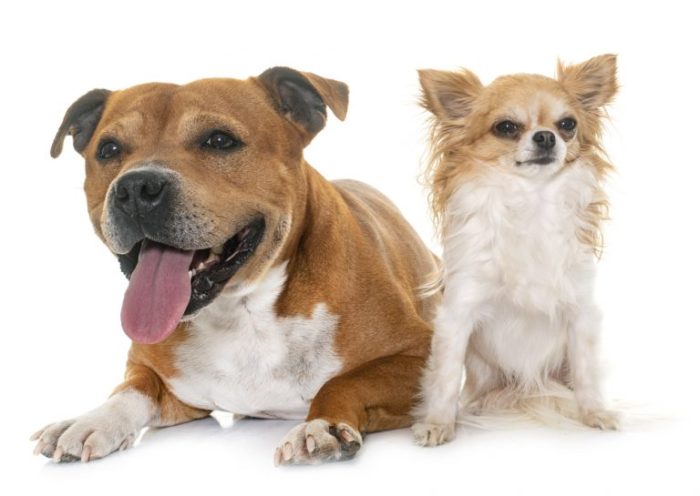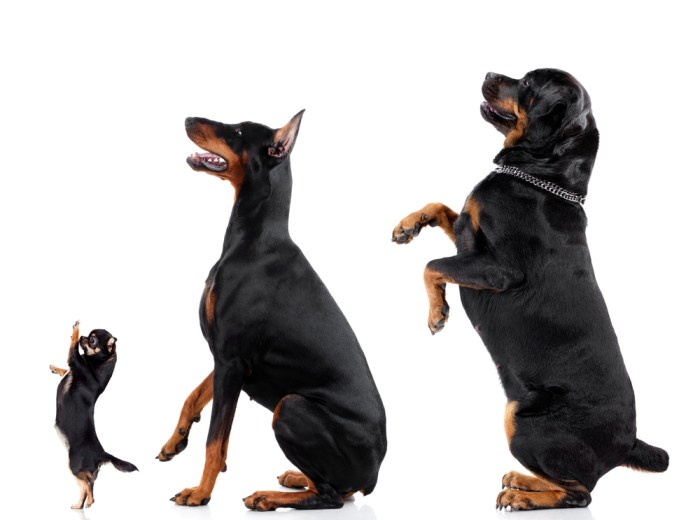Do Dobermans and Pitbulls Get Along? This intriguing question sparks curiosity about the compatibility between these two distinct breeds. Understanding their temperaments, socialization needs, and historical backgrounds is crucial for fostering harmonious interactions.
Delving into the complexities of their personalities, we uncover potential challenges and compatibility issues. By exploring effective training methods and socialization techniques, we aim to shed light on the factors that contribute to successful interactions between Dobermans and Pitbulls.
Temperament and Personality: Do Dobermans And Pitbulls Get Along
Dobermans and Pitbulls possess distinct temperaments that can influence their interactions. Dobermans are known for their intelligence, loyalty, and protectiveness. They tend to be aloof with strangers and wary of new situations, which can lead to aggression if they feel threatened.
Pitbulls, on the other hand, are often described as affectionate, playful, and eager to please. However, they can also exhibit stubbornness and territorial behavior, especially when around unfamiliar people or animals.
Potential Challenges and Compatibility Issues, Do dobermans and pitbulls get along
The differences in temperament between Dobermans and Pitbulls can present challenges in their interactions. Dobermans’ protectiveness and Pitbulls’ territoriality may lead to conflicts if they perceive each other as a threat. Additionally, Pitbulls’ stubbornness can make training difficult, which can further exacerbate compatibility issues.
Socialization and Training

Socialization and training play a crucial role in fostering harmony between Dobermans and Pitbulls. Early socialization with other animals and people can help both breeds develop positive social skills and reduce the likelihood of aggression. Training should focus on establishing clear boundaries and teaching basic obedience commands.
Consistency and positive reinforcement are key to effective training.
Successful Socialization and Training Techniques
- Introduce puppies to a variety of people and animals at a young age.
- Reward positive interactions with treats and praise.
- Use positive reinforcement training methods, such as clicker training.
- Enroll in obedience classes to enhance training and socialization.
Size and Energy Levels

Dobermans and Pitbulls differ significantly in size. Dobermans are typically larger and more muscular, while Pitbulls are more compact and agile. Their energy levels are also different, with Dobermans requiring more exercise and mental stimulation than Pitbulls.
Managing Exercise Needs and Compatibility
The difference in size and energy levels can impact their compatibility. Dobermans may become bored and destructive if they do not receive sufficient exercise, while Pitbulls may become hyperactive and difficult to control if they are not given enough mental stimulation.
It is essential to provide both breeds with ample opportunities for physical activity and mental enrichment to maintain their well-being and compatibility.
Breed History and Background
Dobermans were originally bred as guard dogs, while Pitbulls were bred for bull-baiting and later for fighting. These historical backgrounds may influence their interactions to some extent. Dobermans’ protective instincts may make them more likely to view other dogs as threats, while Pitbulls’ fighting heritage may contribute to their territorial behavior.
Implications for Compatibility
Understanding the historical backgrounds of Dobermans and Pitbulls can provide insights into their potential compatibility. While their breeding does not predetermine their behavior, it is important to be aware of the potential challenges that may arise due to their past.
Common Misconceptions and Myths

Dobermans and Pitbulls are often subject to misconceptions and myths that perpetuate negative stereotypes. One common misconception is that both breeds are inherently aggressive. However, research has shown that aggression is not a breed-specific trait and can be influenced by various factors such as training, socialization, and genetics.
Promoting Accurate Understanding
Responsible ownership and education are crucial for overcoming stereotypes and promoting accurate understanding of Dobermans and Pitbulls. Owners should educate themselves about the breed’s history, temperament, and training needs. By providing proper care and training, owners can help dispel misconceptions and demonstrate the true nature of these loyal and affectionate companions.
Questions and Answers
Are Dobermans and Pitbulls naturally aggressive?
While both breeds have a reputation for being aggressive, proper socialization and training can mitigate these tendencies. Their aggression is often rooted in fear or a lack of socialization rather than inherent aggression.
How important is socialization for Dobermans and Pitbulls?
Socialization is crucial for both breeds. Exposing them to various people, animals, and environments from a young age helps them develop confidence and reduces the likelihood of fear-based aggression.
Can Dobermans and Pitbulls live together peacefully?
Yes, Dobermans and Pitbulls can coexist peacefully with proper socialization, training, and responsible ownership. Introducing them gradually, establishing clear boundaries, and providing adequate exercise can promote harmony between these breeds.